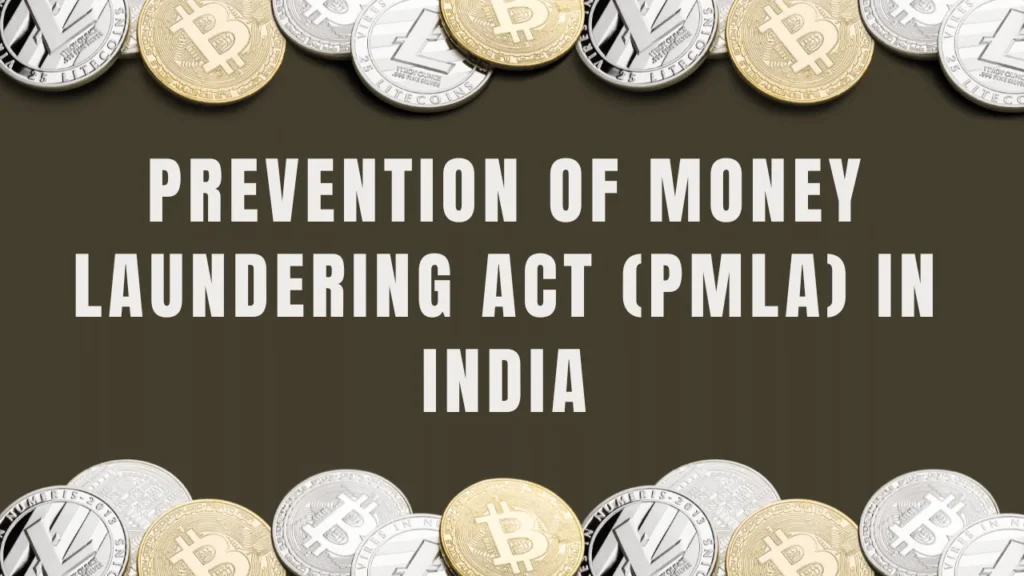Cryptocurrency is a controversial and potentially game-changing phenomenon in the dynamic world of financial technology. There has been a lot of talk about India’s position on cryptocurrencies as the country deals with the digital revolution. Is Crypto Legal in India? The article explores the complex web of laws, rulings, and tax consequences that shape the framework for cryptocurrency operations in India. Through an examination of the present state of affairs, we aim to inspire confidence and enthusiasm by showcasing India’s progress towards adopting this digital financial paradigm.
Cryptocurrency and Its Significance in India

The advent of cryptocurrency, a decentralized digital money system that employs cryptography to ensure its security, has been a game-changer in the world of finance. Along with regulatory hurdles, judicial interventions, and a rapidly expanding user base, the history of cryptocurrency in India has been fascinating. A lot of the rules that modern cryptocurrencies are based on came from the Indian government and its regulatory agencies, especially the Supreme Court and the Reserve Bank of India (RBI). To highlight its relevance within the larger framework of financial innovation and economic strategy, this section gives a thorough outline of the development of cryptocurrency in India.
Regulatory Evolution and Supreme Court Intervention
RBI’s Initial Stance and Prohibition
Following months of cautious consideration, the Reserve Bank of India finally issued a directive in April 2018 forbidding financial institutions and banks from offering any services connected to digital currencies. Investor protection, market integrity, and security concerns prompted this action.
Supreme Court’s Historic Verdict
The Indian Supreme Court made history in March 2020 by striking down the Reserve Bank of India’s prohibition, saying the restriction was excessive in comparison to its goals. In addition to reviving interest and investment in cryptocurrencies nationwide, this decision highlighted the judiciary’s role in the regulatory discourse.
Taxation Framework and Compliance Measures
Imposition of a 30% Tax on Cryptocurrency Gains
In April 2022, the Indian government took a major step towards mainstreaming cryptocurrencies by imposing a 30% tax on earnings from cryptocurrency transactions. Investments in cryptocurrencies will be more open and accountable under this tax regime.
1% TDS on Crypto Transactions
In July 2022, a 1% Tax Deducted at Source (TDS) was imposed on cryptocurrency transactions as part of the government’s continued attempts to oversee and control the cryptocurrency market. To guarantee conformity with tax regulations, this step follows the flow of digital assets.
All Participation In accordance with PMLA,
An important step towards strict regulatory oversight was the March 2023 inclusion of cryptocurrencies under the Prevention of Money Laundering Act. With this addition, we hope to strengthen the safety of digital asset transactions and reduce the flow of illicit funds.
Legal Status of Cryptocurrencies in India
Bitcoin and other cryptocurrencies are still not officially accepted as money in India, despite some progress in the regulatory realm. Virtual digital assets may be held, traded, and invested in, so long as they don’t violate any rules or laws. By striking a balance between innovation and consumer protection, this nuanced approach mirrors India’s open but cautious attitude towards digital currencies.
Emerging Policies and the Path Forward
Policy for the National Data Governance Framework
The goal of recent legislative initiatives is to bring data handling practices up to date. One such initiative is the Draft National Data Governance Framework Policy. Businesses focused on digital operations, such as those in the cryptocurrency industry, will find these regulations encouraging because they are expected to strengthen cybersecurity measures.
Digital Personal Data Protection Act, 2023
In 2023, India announced its intention to pass a law protecting individuals’ privacy in the digital economy with the introduction of the Digital Personal Data Protection Act. The cryptocurrency industry is affected by this act, especially with regard to user privacy and data security.
Digital Rupee and Cryptocurrency Comparison
Cryptocurrencies’ murky legal status stands in stark contrast to the government’s adoption of the digital rupee. This change exemplifies the government’s strategy to encourage a digital economy while keeping some monetary control.
1% TDS Rule on Cryptocurrency Transactions
The introduction of a 1% Tax Deducted at Source (TDS) on cryptocurrency transactions is a significant move in the right direction towards increasing regulatory oversight and transparency in India’s digital currency operations. In this section, we will delve into the details of this rule, its effects on traders and investors, and how it fits into the larger Indian cryptocurrency tax system.
Mechanism of the 1% TDS
Everyone engaging in the purchase or sale of cryptocurrency is subject to the 1% TDS when the transaction takes place. To make monitoring and taxation easier for the authorities, this proactive tax collection seeks to establish a full audit trail of cryptocurrency transactions.
Impact on Investors and Traders
Cryptocurrency investors and traders’ liquidity and operational strategies are affected by the TDS, which partially meets tax obligations upfront. Cryptocurrency traders and investors need to factor this tax break into their financial projections and investment strategies.
Overall Tax Framework
A two-tiered tax system for transactions involving digital assets is created by the combination of the 30% tax on cryptocurrency gains and the 1% TDS. This incorporation highlights the government’s stance toward treating cryptocurrencies as regular investment assets, with some modifications to account for their digital nature.
Reconciliation and Refund Mechanisms
There is a provision for taxpayers to reconcile their total tax liability at the end of the financial year with the TDS deducted on cryptocurrency transactions. Aligning the TDS mechanism with standard tax practices, investors have the option to claim a refund if the total tax paid exceeds their actual tax liability.
Prevention of Money Laundering Act (PMLA) in India

By incorporating cryptocurrency into the PMLA, India has demonstrated its determination to strengthen the regulatory and legal framework against the abuse of digital currencies for criminal purposes. What follows is an analysis of the inclusion’s relevance, its effects on the cryptocurrency ecosystem, and the duties that different players will have as a result.
Oversight and Security
Aiming to increase the oversight of financial transactions involving digital assets, cryptocurrencies are now classified as subjects of the PMLA. A safer environment for legitimate cryptocurrency activities will be achieved by preventing money laundering and terrorism financing through this measure.
Implications for Crypto Exchanges and Wallet Providers
Tight anti-money laundering (AML) and know-your-customer (KYC) regulations have recently been imposed on cryptocurrency exchanges and wallet providers. Reporting questionable transactions and keeping meticulous records of client identities and transactions are among these responsibilities.
Transparency and Investor Protection
More openness in the digital asset market is a result of PMLA rules being applied to cryptocurrencies. The measure aims to build a more secure investment landscape by imposing stricter compliance requirements, which will protect investors from fraud and other financial crimes.
Challenges and Compliance Burdens
Businesses in the cryptocurrency sector face heavy compliance burdens as a result of the PMLA’s inclusion of cryptocurrencies, which is a step in the right direction towards regulatory clarity. Full compliance with these regulations necessitates the use of resources and constant monitoring.
FAQs
1. Is cryptocurrency legal in India?
Assuming compliance with all applicable rules and regulations, trading and holding cryptocurrencies is indeed legal in India.
2. What is the tax rate on cryptocurrency gains in India?
In India, any money made through cryptocurrency transactions is subject to a 30% tax.
3. How does the 1% TDS on cryptocurrency transactions work?
All cryptocurrency transactions, whether made by buyers or sellers, have a 1% TDS withheld at the source in order to establish a record of transactions and guarantee tax compliance.
4. Are cryptocurrencies considered legal tender in India?
Although cryptocurrency is not yet a legal tender in India, it is perfectly legal to trade and own virtual digital assets.
5. How do PMLA regulations affect cryptocurrency transactions?
Cryptocurrency exchanges and wallet providers will be subject to stricter Know Your Customer and Anti-Money Laundering regulations as a result of the PMLA’s inclusion of cryptocurrencies.
Also Read: Unlocking the Latest Crypto Trends: Cryptonewzhub.com
Conclusion
A microcosm of the possibilities and threats posed by digital financial technology is the rise and fall of cryptocurrency in India. Is crypto legal in India? Striking a balance between innovation, consumer protection, and financial stability is of utmost importance as India works towards a comprehensive regulatory framework. What promises to be an intriguing chapter in the history of financial technology is the future of cryptocurrency in India, which is dependent on how this regulatory landscape develops.

Timothy Jensen is an expert writer who specializes in the world of cryptocurrencies, including blockchain technology and Bitcoin. He has a passion for explaining complex topics in an easy-to-understand way. Timothy’s work aims to demystify the digital currency landscape for his readers.

